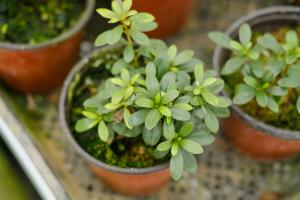Introduction
Planting vegetables in Georgia can be a bit tricky, as the state experiences a range of climates, from the humid subtropical climate in the southern coastal plain to the mountain climate in the north. The timing of planting will depend on the type of vegetable you want to grow and where you are located in this diverse state. Here's a guide to help you determine when to plant vegetables in Georgia.
Spring Planting
March and April are the ideal time to start planting most vegetables in Georgia. This is when the soil temperature starts to warm up, allowing for seeds to germinate and plants to grow. During spring, vegetables such as beans, cucumbers, carrots, and squash can be planted. It鈥檚 important to note that planting should be done after the last expected frost date, which varies by location.
Summer Planting
Summer in Georgia can be hot and humid, but it provides the ideal conditions for warm-season crops such as tomatoes, peppers, and eggplants. These plants love heat and require long days of sunlight. The best time to plant these crops is during early to mid-May. Other vegetables that can be planted during summer are okra, sweet potato, and watermelon.
Fall Planting
Fall in Georgia is a milder season, making it an ideal time to plant cool-season crops such as broccoli, lettuce, and cauliflower. These vegetables thrive in the cooler temperatures and shorter days of autumn. The ideal time to plant these crops is during late August to early September. Other vegetables that can be planted in the fall are beets, chard, and spinach.
General Tips
Before planting vegetables in Georgia, it鈥檚 important to know the specific soil and light requirements for each crop. In general, most vegetables thrive in full sunlight and well-drained soil. It's also important to check the pH level of the soil and add amendments if necessary. Lastly, proper watering and weed control is crucial to the success of any vegetable garden.
In conclusion, knowing when to plant vegetables in Georgia is essential to a successful garden. By following the appropriate planting schedule and taking care of your plants, you can enjoy an abundant harvest of fresh, healthy produce.

 how many times do yo...
how many times do yo... how many planted tre...
how many planted tre... how many pine trees ...
how many pine trees ... how many pecan trees...
how many pecan trees... how many plants comp...
how many plants comp... how many plants can ...
how many plants can ... how many plants and ...
how many plants and ... how many pepper plan...
how many pepper plan...































